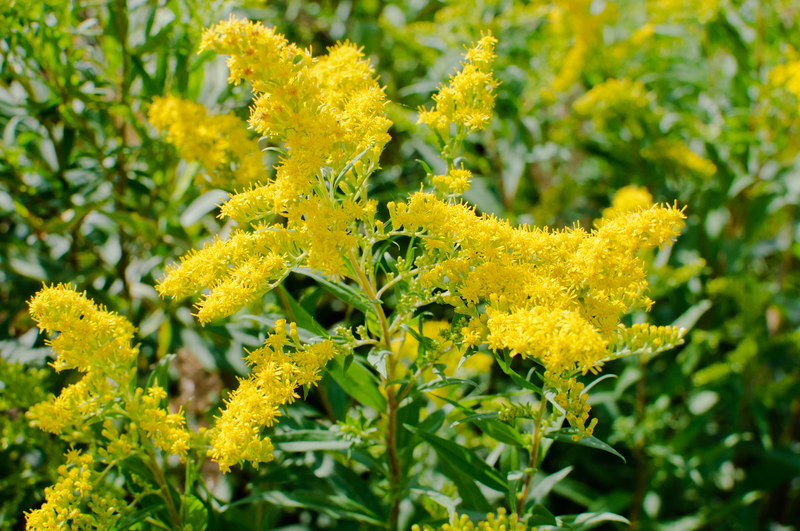Elevate Your Gardening Game with 3 Weed Control Strategies
Posted on 13/06/2025
Gardening can be a rewarding and therapeutic activity, but weeds can often stand in the way of a lush, healthy garden. Whether you're a seasoned horticulturist or just starting your gardening journey, mastering effective weed management techniques is crucial. In this comprehensive guide, we'll explore three powerful weed control strategies that will not only help you reclaim your flower beds and vegetable gardens but also boost the vitality of your plants.
By implementing these innovative weed prevention and elimination tactics, you'll be well on your way to elevating your gardening game.
Why Is Weed Control Important in the Garden?
Weeds are more than just an unsightly nuisance; they're fierce competitors for sunlight, water, and nutrients. When left unchecked, they can take over, choking out your prized plants and reducing your garden's productivity. Moreover, some weeds harbor pests and diseases that may spread to your prized flowers and vegetables. Effective weed control strategies can help you maintain a thriving, resilient, and visually stunning landscape.

Three Effective Weed Control Strategies to Transform Your Garden
1. Mulching: Nature's Blanket for Weed Suppression
Mulching is one of the most eco-friendly and efficient ways to control weeds in any garden setting. By applying a layer of organic or inorganic material over the soil surface, you effectively block weeds from accessing sunlight, thus inhibiting their growth.
- Organic Mulches: Straw, bark chips, compost, pine needles, shredded leaves
- Inorganic Mulches: Landscape fabric, black plastic, gravel
How Mulching Works for Weed Management
Mulch acts as a physical barrier, making it hard for weed seeds to germinate and reach the surface. It also helps retain soil moisture, regulate temperature, and add organic matter to the soil as it decomposes. This simple technique can cut your weeding chores by up to 90%!
Tips for Successful Mulching
- Depth Matters: Apply mulch to a depth of 2-4 inches. Thinner layers may not fully suppress weeds, while overly thick mulch can suffocate plant roots.
- Choose the Right Mulch: Use organic mulch in vegetable beds for added nutrients, and inorganic mulch for pathways or ornamental borders.
- Refresh Annually: Replenish organic mulch each year as it breaks down and compacts.
- Avoid Mulching Too Close to Stems: Leave a little breathing space around the stems of plants to prevent rot.
Mulching is a low-cost, low-effort, and powerful weed control method that every gardener should use for a neater and more productive landscape.
2. Manual and Mechanical Weed Removal: Target the Problem at Its Roots
When it comes to weed control in gardens, sometimes the tried-and-true methods stand the test of time. Manual and mechanical weed removal involves physically pulling or cultivating weeds, a practice that can be both effective and satisfying, especially in smaller gardens.
Hand Pulling: The Direct Approach
- Best for: Small patches, young weeds, and areas near valued plants.
- Timing: Weed after rain or watering, when the soil is loose--the roots will come out more easily.
- Technique: Grasp weeds close to the ground and pull steadily to get the roots. For tap-rooted weeds (like dandelions), use a weeding fork or specialized tool.
Mechanical Tools for Weed Management
- Hoes: Scuffle hoes, stirrup hoes, and collinear hoes can quickly slice weeds at the soil line.
- Garden Cultivators: Useful for loosening soil and uprooting weed seedlings before they become established.
- Flame Weeders: For paths or driveways, flame weeders use propane or butane to zap weeds without chemicals. Be sure to follow safety guidelines.
Benefits of manual and mechanical weeding:
- Non-toxic and safe for edible crops.
- Allows precision - you remove only the unwanted plants.
- Immediate results.
Pro Tip: Don't leave uprooted weeds lying around your garden--many can re-root or drop seeds if they're not removed or composted properly!
3. Smart Gardening Practices: Prevention is the Best Weed Control
While mulching and hand-pulling are fantastic for weed removal, the savviest gardeners know that preventing weed problems is even better than treating them. Adopting smart gardening practices creates an environment where weeds struggle to gain a foothold.
Grow a Thick Plant Canopy
- Dense Plantings: Fill your flower beds and vegetable rows with closely spaced plants. A thick, lush canopy of foliage shades the soil, reducing sunlight for weed seeds and minimizing their germination.
- Ground Covers: Use vigorous ground cover plants like creeping thyme, sedum, or clover for ornamental beds. In vegetable gardens, try living mulches such as white clover or buckwheat.
Crop Rotation & Cover Crops
- Crop Rotation: Rotate crops each year to disrupt the life cycles of annual and perennial weeds. This also helps prevent soil-borne diseases.
- Cover Crops: In fall and winter, sow fast-growing cover crops like rye, vetch, or winter peas. Their thick growth smothers weeds and improves soil fertility when turned under in spring.
Sanitation: Limit Weed Seed Spread
- Clean Tools and Boots: Weed seeds can hitch a ride on your gardening tools or shoes. Always clean them before moving between different sections of your garden.
- Use Compost Carefully: Only add fully composted plant material to your beds. Unfinished compost can introduce fresh weed seeds.
By integrating these preventative weed control methods into your gardening routine, you'll drastically reduce the time and effort spent on weed removal--giving you more time to enjoy your beautiful results!
Bonus: Common Weed Myths--Busted!
There are several misconceptions about garden weed control that can actually hinder your success:
- "If I just cut weeds down, they won't come back."
Truth: Many weeds, especially perennials, will regenerate from roots or rhizomes left behind. Full removal is essential. - "All weeds are bad."
Truth: Some wild plants can attract beneficial insects, fix nitrogen, or even be edible! Learn to recognize and selectively manage your weeds. - "Herbicides are always the answer."
Truth: Chemical solutions may be necessary for severe infestations, but overuse can harm your soil, water, pollinators, and the surrounding environment.

The Benefits of Integrated Weed Control Tactics
No single approach can guarantee a weed-free garden, but a blend of methods tailored to your needs can give you the edge. Integrated weed management combines mulching, manual intervention, and smart planting practices to create a multi-layered defense system against weeds.
- Improves garden aesthetics and productivity
- Reduces reliance on chemical herbicides
- Enhances soil structure and fertility
- Creates a healthier environment for plants, pollinators, and people
Routine Matters
Regular monitoring and early action are the best ways to prevent small weed problems from becoming big ones. Walk your garden weekly, pull weeds as soon as they sprout, and renew your mulches every spring.
Conclusion: Take Control and Watch Your Garden Flourish
By adopting these three essential weed control strategies--mulching, manual/mechanical removal, and preventative gardening practices--you're set to elevate your gardening game to impressive new heights. Not only will your garden beds look tidier, but your flowers and vegetables will have the resources and space they need to thrive.
Remember: Every weed you remove today is one less that can drop seeds for tomorrow. By staying proactive and persistent, you'll enjoy the beauty and bounty of a weed-controlled garden all season long!
Ready to Reclaim Your Garden from Weeds?
- Mulch smartly for season-long protection.
- Cultivate and hand-pull for precise results.
- Practice smart gardening to outcompete weeds naturally.
Latest Posts
Design a Lively Outdoor Environment for Children to Thrive
Find inspiration for tranquil Zen outdoor spaces
Growing a Greener Tomorrow: The Climate Impact of Gardens

